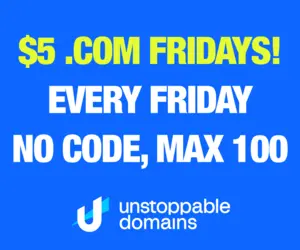- Joined
- Sep 4, 2002
- Messages
- 15,045
- Reaction score
- 2,237
The so called "experienced" is based on previous sales of similar domains, sales of your own domains, and with time, you develop a general feel for domain values based on this vast database of sales that's stored in the brain. It's hard to explain, and this is why you get a lot of "gut" responses. Most people have not sat down to identify the indicators they use for valuating domains, but if they did, they would definitely find them.
In domaining, just like in every other industry, this is the so called "gut feeling", and most people generally develop this after years in the industry.
This is something that CAN be done with an automated system for domains (though all have failed).
Here are a few examples of other industries relying on automated prediction models...
- The real estate industry uses automated systems of calculating real estate value based on HISTORICAL sales and industry trends.
- The banking and credit industries use automated systems for determining "credit" worth of an individual based on their income and HISTORICAL credit usage.
- The insurance industry uses automated systems for analyzing RISK and calculating premium costs.
Compared to domain valuations, the above three are MUCH harder to work with. It's not extremely hard to determine the value of a domain given enough HISTORICAL data. And that's the source of the problem. Historical domain sales aggregators have only recently begun to pop up (namebio, etc). The core component in valuation was always missing. Additionally, there have been a lot of sites over the years that produced very exaggerated valuations (in order to excite the domain owner and get them to purchase more appraisals) and this created a lot of confusion and gave the appraisal service a bad name.
With that said, I AGREE with the veterans here. There is no GOOD automated system for domain valuations.
This is why I became involved in Estibot (2.0) which powers valuate.com. We are working on creating a standardized model for valuating domains for both end-users and domainers (retail and wholesale), which are truly different prices. This is work in progress, and we are still quite far from a finished product.
The reason most domainers laugh at automated prices is because they sell to other domainers, and Estibot/Valuate.com (2.0) pricing largely reflects end-user prices which most in our industry never see. Hence the need for dual pricing, retail and wholesale (just like when you sell a car to a dealer VS selling it to an individual, though the gap in our industry is much bigger).
To answer your question... There are two values. The end-user value, which can be very broad, and the wholesale value (price a domainer is willing to sell for) which is a small fraction of the end-user value but directly proportional.
The best indicators are:
1. Previous sales of similar domains.
2. Industry in which the domain falls into (ex: financial, banking, domaining, etc).
3. The search popularity of the terms within a domain.
Good luck, and PM me if you need specific help.
Thanks,
Luc L.
Hi
all above is good insight, especially when speaking of "gut" feelings
however, i can't consign that a domain has "two" values
To answer your question... There are two values. The end-user value, which can be very broad, and the wholesale value (price a domainer is willing to sell for) which is a small fraction of the end-user value but directly proportional.
there is only one value for a domain
and that is the price the owner is willing to sell for.
that is the attitude of those who own and can afford to hold domains that are in demand.
value is a perceived attribute, that is based on concrete statistics and/or an obvious/communicated potential.
the more you can influence or raise the perception of value, the higher your return will be.
for those who don't hold domains that are in demand, then value is determined more by what a buyer is willing to pay.
still, marketing and presentation can raise the perception of value and thus increase the potential of demand and higher roi.
this is where experience and knowing how to negotiate, present, market, and influence potentials, in the potential of the domain come into play.
without experience in assessing a value, how will you ever know what value is?
can be confusing, but basically i see value as a fixed point in the mind of that respective domain owner, at the time they consider selling.
once or if the domain is sold, changes hands, value can increase or decrease, depending on what the new owner does.
imo...








